On a mild August day, a light waft of sweet-smelling incense trails through the back-alley maze of a hidden Capitol Hill courtyard, leading a few colleagues and me to the former carriage house that is now Will Fleishell’s studio. He opens his screen door that he has painted in a colorful abstraction of swirls, and welcomes us into the clutter and incredible intricacy of his mind—a space that is a mix of the crude and refined, the silly and the serious. “My art studio’s gotta be like a baroque palace or I’m not happy,” he says. This is where Fleishell—one of only 40 bank note portrait engravers in the world—bides his time comfortably dressed in Dickies and a T-shirt, plopped onto a padded stool, perching over a neat row of burins (wooden mushroom-topped engraving tools) while scratching away at thin copper plates for freelance clients such as Oprah Winfrey, the Smithsonian, and The New York Historical Society.
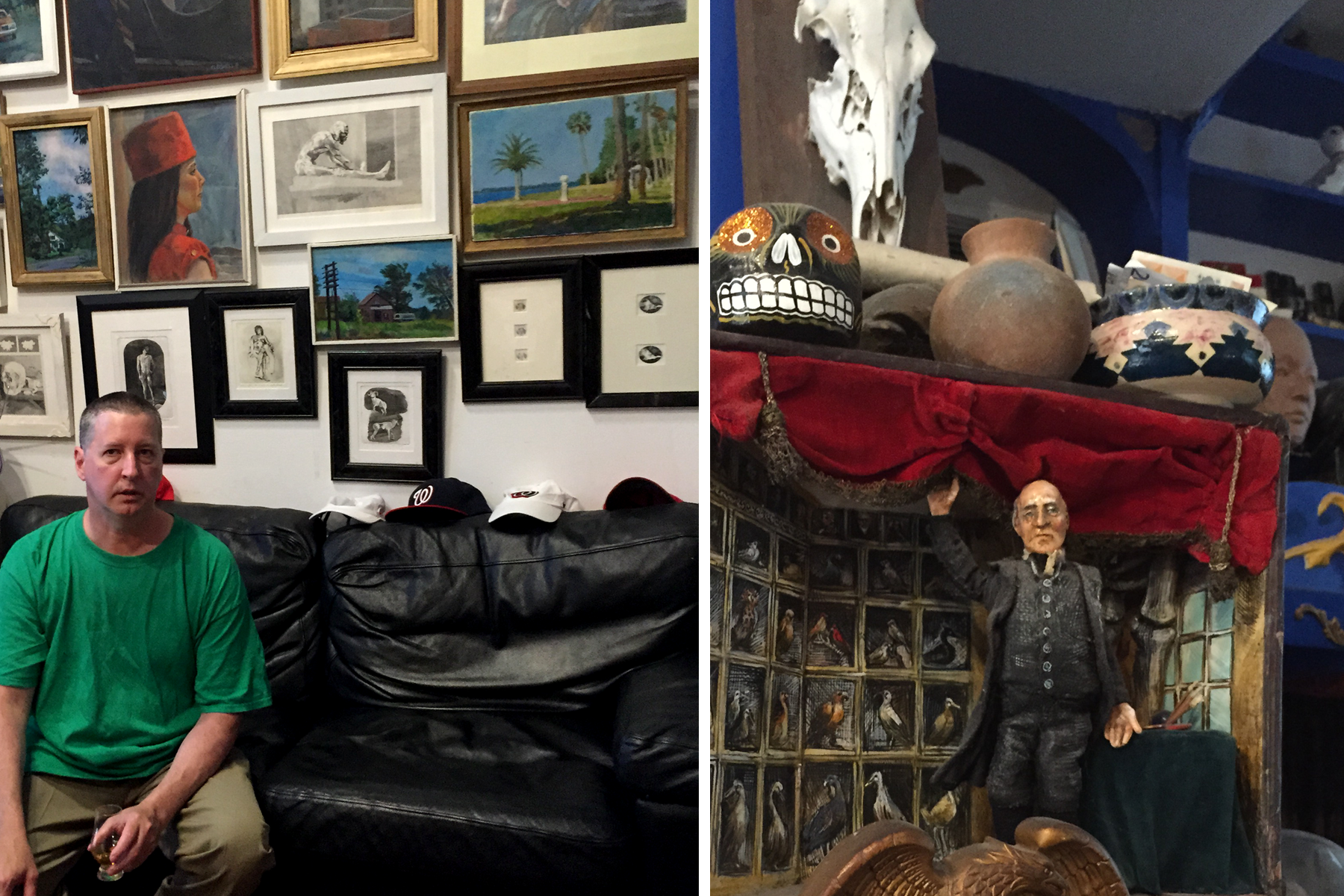
This small, boxy treasure trove framed by bright blue bookshelves is stuffed to the brim with art and history books (“I have so many damn art books it’s pathetic,” he says), and littered with various curiosities: sculptures such as the bust of a woman that serves as a perch for a silvery satin yamaka; a stack of felt hats; vintage ceramic milk pourers; and a row of amethyst geodes that sit behind a conga line of miniature plastic horses. Medical anatomical models occupy a window ledge where a couple of child-sized plastic skeletons dangle next to an upside down model of the muscles in the left leg, a long gothic cross necklace hanging from the arch of its foot.
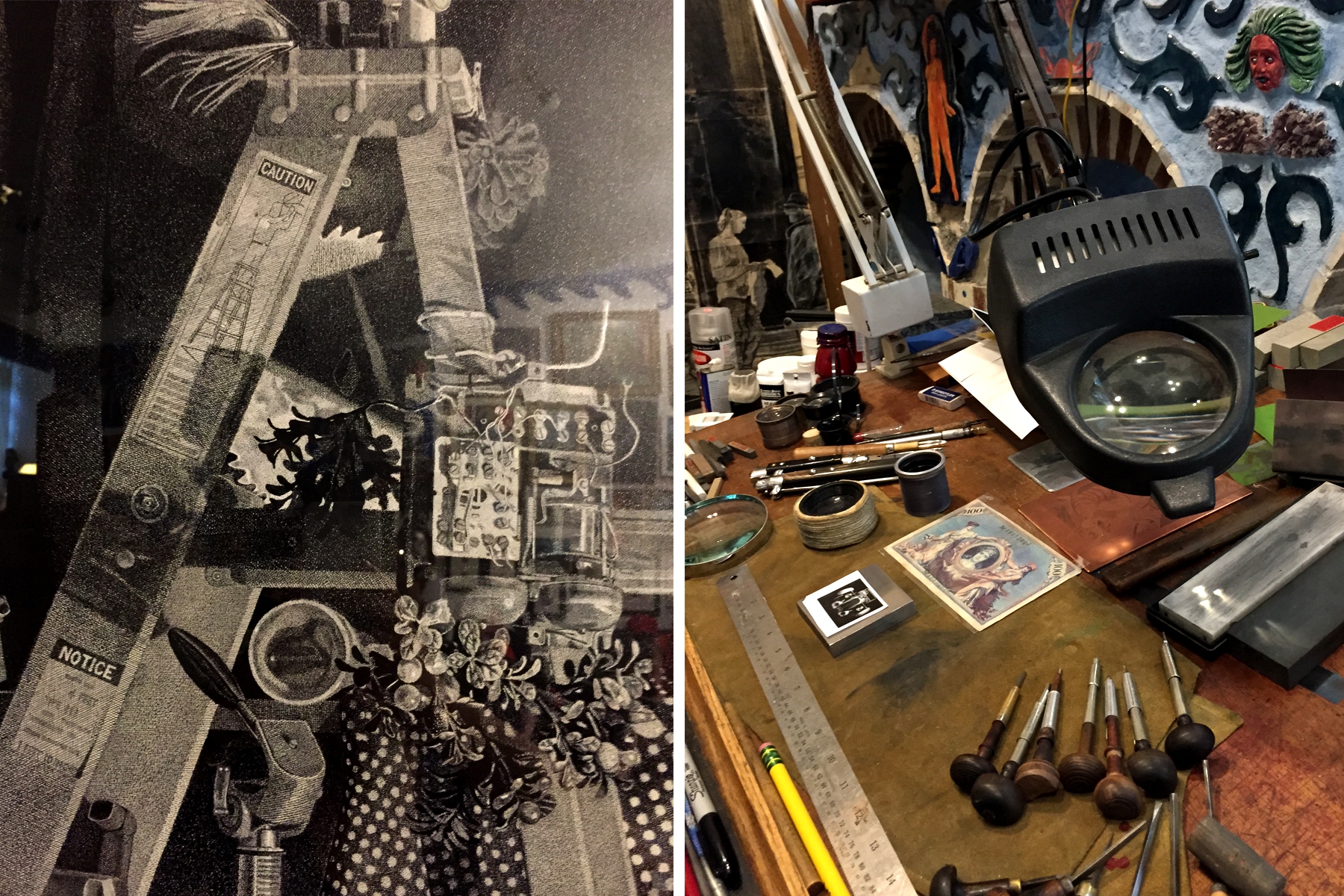
Each wall is a patchwork quilt of his haphazardly hung oil paintings (the female figure, DC street scenes, a lone cloud study), several fine pencil drawings rendered in crosshatch with the detail and precision of a brain surgeon. One pencil drawing in particular—a hyper-realistic still life composed of motley items one would find in an attic—took him two years to render, securing his place at The Department of the Treasury’s Bureau of Printing and Engraving 27 years ago. In Fleishell’s early days, it was his cash cow: “I would take the drawing to an art show and walk out with a couple hundred dollars,” he said. The Bureau hired him on the spot after they saw the drawing, allowing him to study for ten years as a picture engraver’s apprentice, and later graduating to journeyman picture engraver in 1988. In the mid-2000s, and perhaps most notably, he engraved the portrait of Abraham Lincoln on the Series 1999 five-dollar bill, along with the border of the Series 1996 one-hundred-dollar bill.
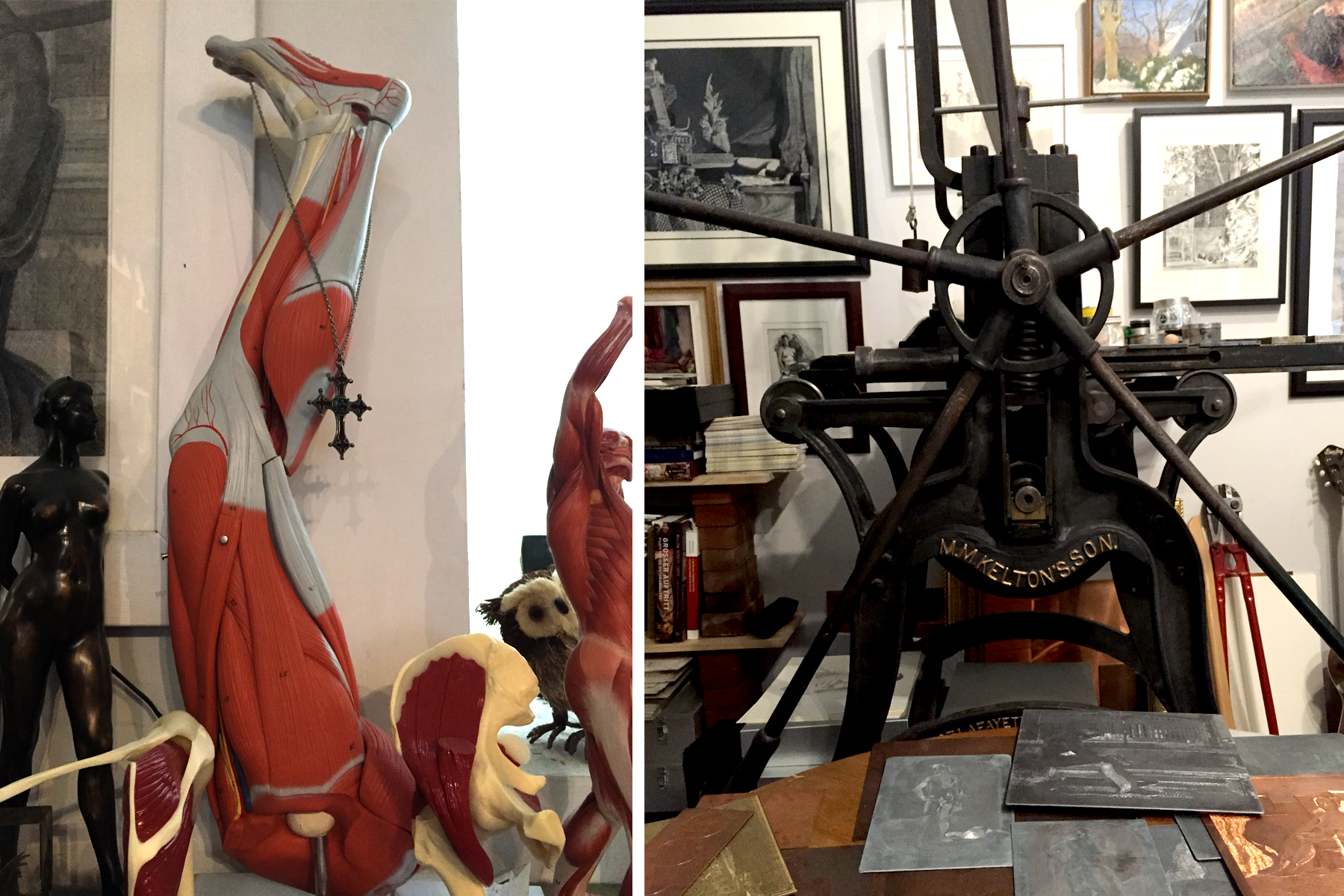
Against another wall rests a behemoth copperplate printing press from the 1900s with a turning wheel that looks as though it could steer a ship. Next to it is a table where several etched copper plates are strewn, left as constant reminder for Fleishell to print: “I’m trying to intimidate myself into doing it,” he says. He calls this collection of fine art allegorical engravings “UFOs,” or Unfinished Objects. What makes these engravings so special is that they cannot be mechanized, as they contain the soul and specific movements of the artist. The energy that comes across in Fleishell’s etchings is as unique as his fingerprint. Each organic dash, dot, and line becomes part of his craft—a human element that in reference to engraving our money becomes almost impossible to counterfeit. “Every line is different from one person to another, and I can tell,” Fleishell says.
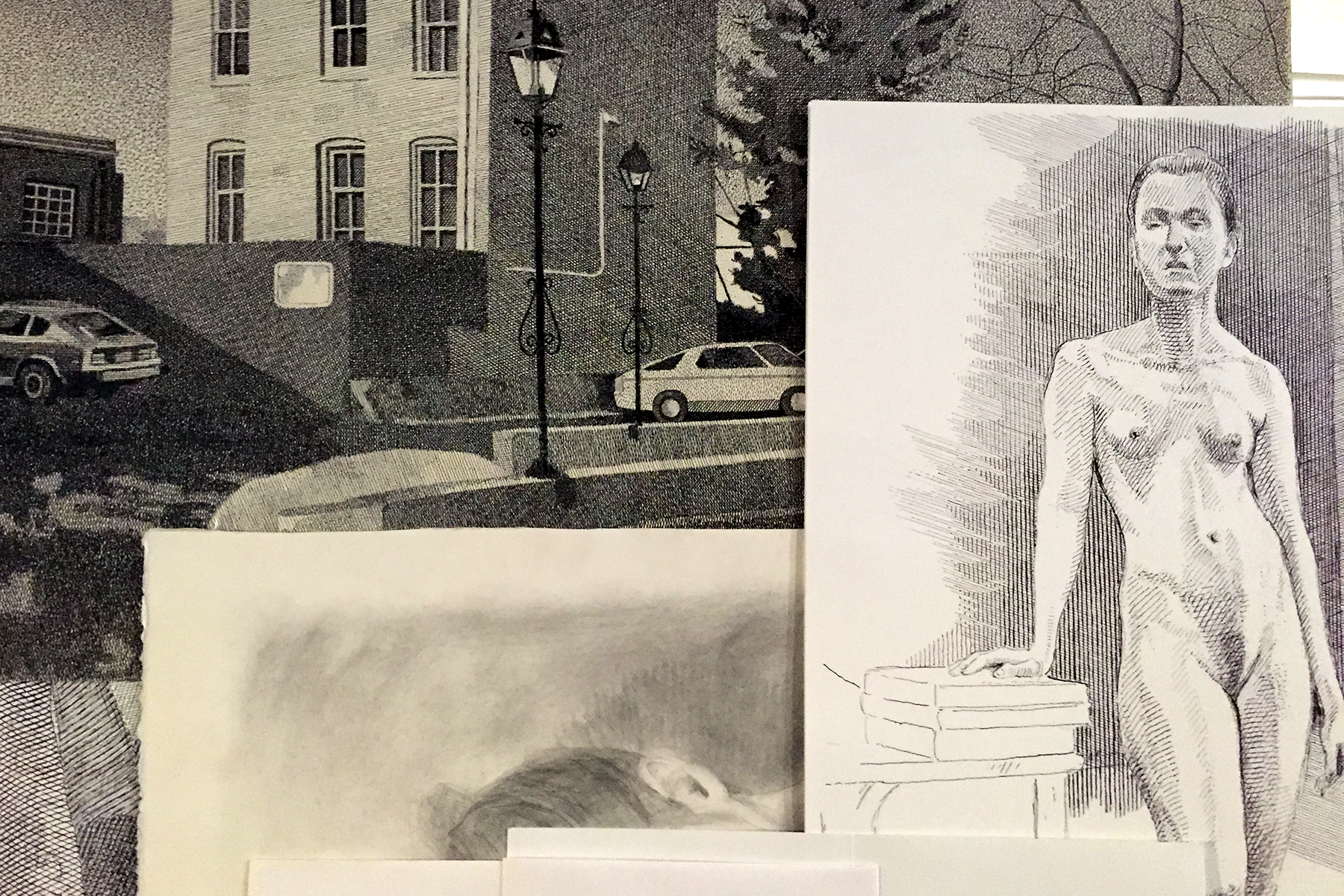
“It’s time consuming but it’s beautiful and fun,” Fleishell says about his time freelancing as a fine arts engraver, after showing us a neatly laid out array of the result of such meticulous work: book plates for Cooper-Hewitt, Smithsonian Design Museum; a cherry tree that rests atop the stationery set for Oprah Winfrey, in which he expertly concealed his last name within the miniscule dashes and dots, and can only be seen using a magnifying glass. Wine labels, monograms, and dog portraiture on bookplates sit among one of many suns that the news show “CBS Sunday Morning” features between each segment. This is not work for him—it is his passion: “I’m not watching the clock, I just love doing it.”
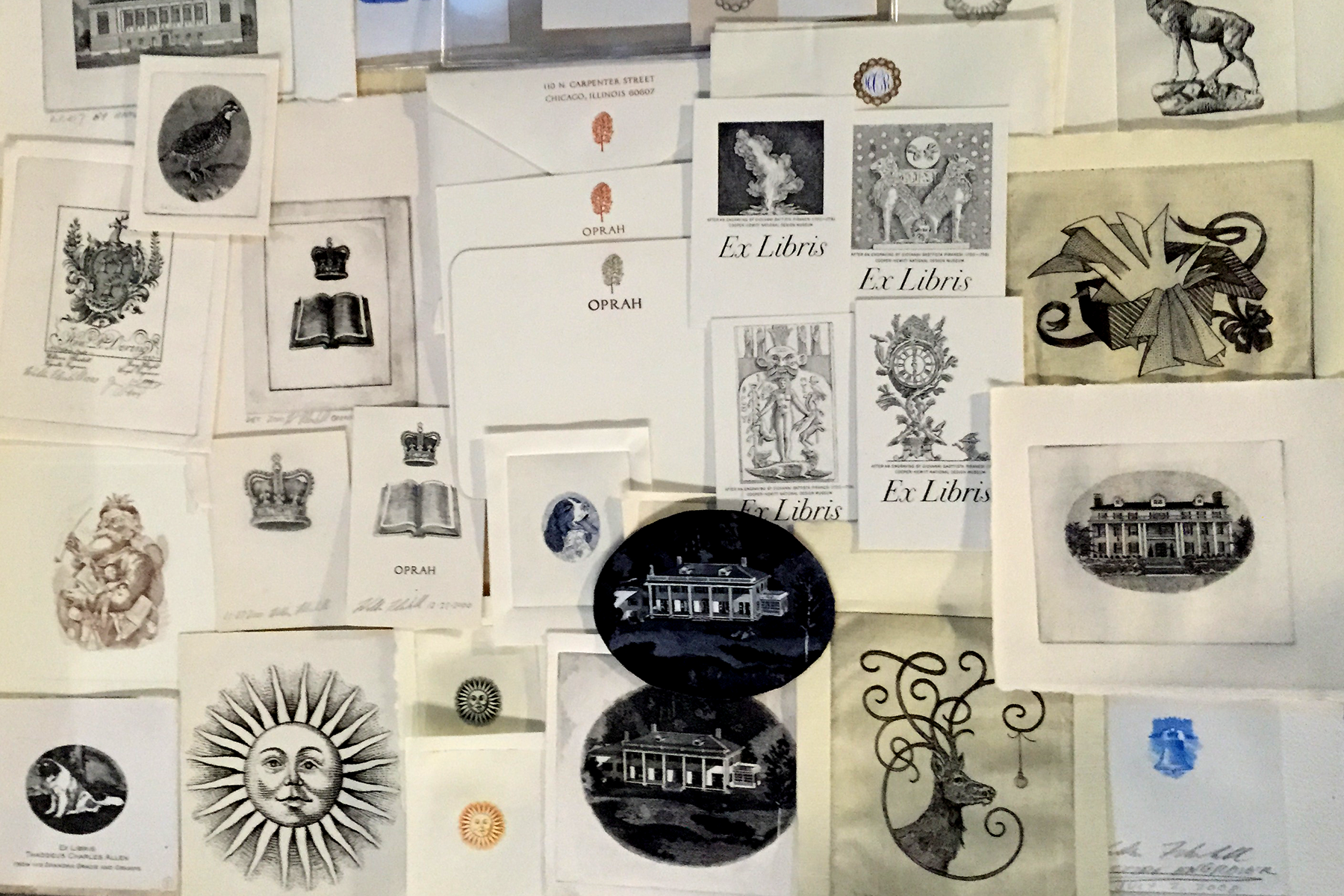
Fleishell, a seventh-generation Washingtonian, has a collection of fascinating stories and historical details, knows all about the hardware store that caught fire in the 80s, and is friends with the artist who sculpted the lions at DC’s National Police Memorial. He has left his artistic flourishes on old emergency-call boxes around DC—a project named “Art on Call” that he started with his late father—a former master calligrapher—in an attempt to preserve and celebrate the DC neighborhoods where each is located. For a peek at one of his call boxes, Check out 7th and Pennsylvania Southeast in front of Le Pain Quotidien. As our time with Fleishell winds down, what remains among the cracker crumbs, air-hardened brie and half-empty bottle of whiskey, is the thought that this comfortable, eclectic, and culturally-saturated studio is less a treasure trove than it is the worn-velvet-cushion of a creative space where the Washington, DC, treasure that is Will Fleishell, contentedly works.